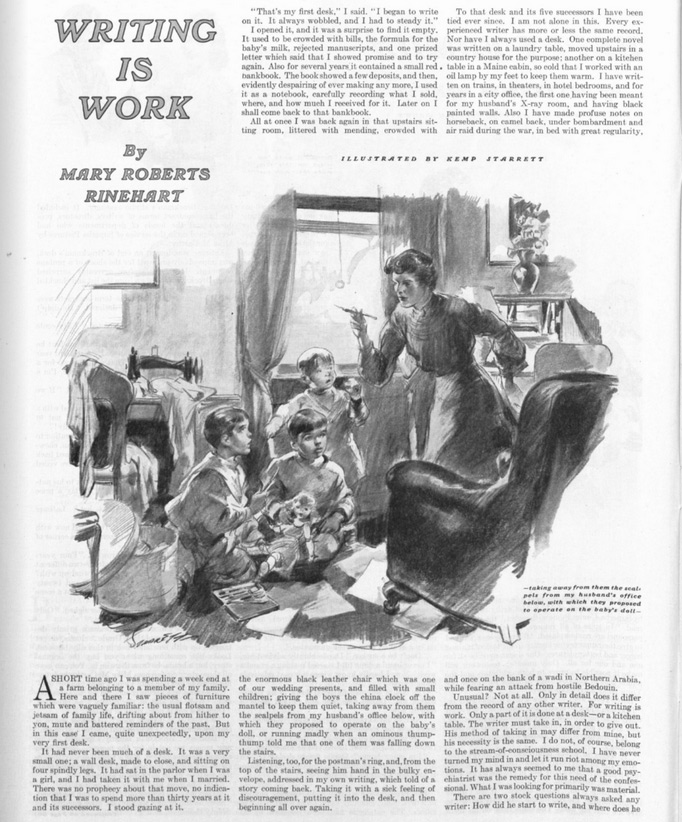Each year at the start of November, thousands of writers — popular and unknown, experienced and amateur — set a goal of penning an entire 50,000-word novel in 30 days to mark National Novel Writing Month (NaNoWriMo). Invariably, they each learn or are reminded of one simple truth: As Mary Robert Rinehart put it in 1939, “Writing is work. Only a part of it is done at a desk.”
For Rinehart, known by some as “America’s Agatha Christie” (though she was publishing mysteries for nearly a decade before Christie’s first novel), the demands of writing and rewriting on top of the responsibilities society placed upon her gender — wife, mother, cook, and housekeeper — were so rigorous that her health suffered. But even sickness could not deter her. She could not simply stop writing; it was a habit, a need, even when it made her physically ill.
Writers, according to Rinehart, “speak with loathing of their job, but few of the professionals really stop. For one thing, the early urge to write, in time, becomes the habit of writing. We are often miserable at our desks or typewriters, but not happy away from them.”
So she kept going. She kept writing: four dozen novels and plays, numerous short stories and serials — including the Tish Carberry series first published in The Saturday Evening Post — essays, and travelogues. She even served as a war correspondent for the Post during World War I. Her work earned her fame and fortune, led to her receiving an Honorary Doctorate in Literature from George Washington University in 1923, and allowed her to help her sons found the publishing house Farrar and Rinehart.
Even in success, though, she was not immune to the discouragement and self-doubt that sometimes strike authors at any level. “My own personal discouragement,” she writes, “is so keen that it reaches the point of neurosis, and I have never failed to have it. At some time during any given piece of work it overtakes me. The story seems pointless, the writing bad. I am overwhelmed by a sense of futility. I want desperately to quit, and I have a sense of actual nausea at the sight of my desk. But eventually I carry on.”
Writers who dream of a career as a novelist can find words of both encouragement and warning in Rinehart’s “Writing Is Work,” first published in the Post on March 11, 1939. Above all, though, her message is one of perseverance. Writing is not easy, but you must carry on because, ultimately, “this is writing. A world passing by, and someone with a pen or a typewriter trying to put a bit of it on paper.”

Become a Saturday Evening Post member and enjoy unlimited access. Subscribe now



